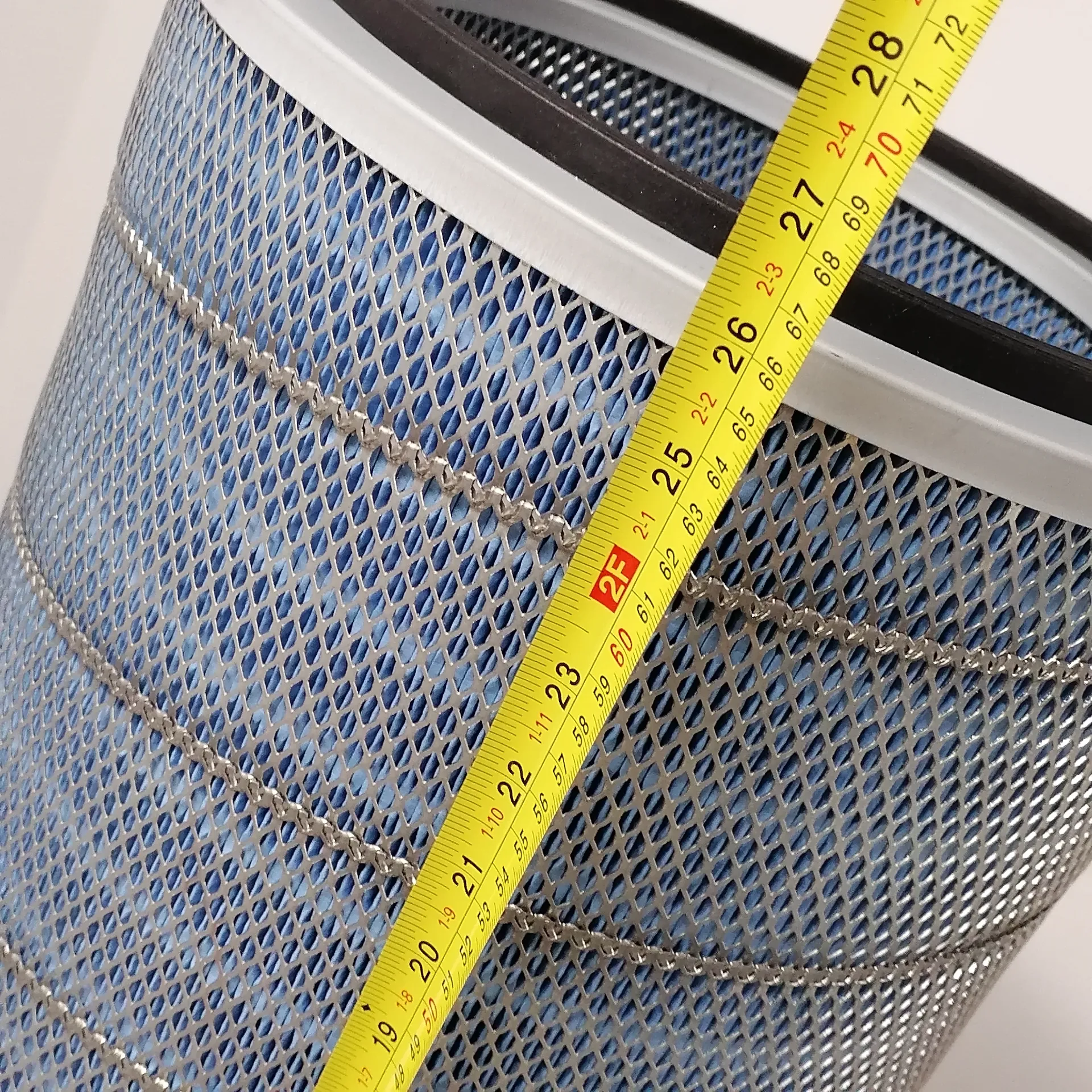 Tel:
+8615930870079
Tel:
+8615930870079
Dec . 03, 2024 22:44 Back to list
High-Performance Polyester Cartridge Filters for Enhanced Filtration Efficiency
The Importance of Polyester Cartridge Filters in Modern Filtration Systems
In our rapidly advancing industrial world, effective filtration systems play a crucial role in maintaining the quality of air, water, and various liquids. Among the myriad of filtration options available, polyester cartridge filters stand out as a versatile and efficient solution, widely used across different applications for their unique properties. This article delves into the significance of polyester cartridge filters, exploring their composition, functionality, advantages, and applications.
What are Polyester Cartridge Filters?
Polyester cartridge filters are filtration devices made primarily from polyester material, known for its durability, chemical resistance, and efficiency in capturing particulates. These filters come in various configurations, including pleated, wound, and melt-blown designs, which allow for a high surface area and optimal performance in various filtration tasks.
The polyester used in these filters is typically non-woven, offering excellent filtration capabilities while allowing for a substantial flow rate. This makes them particularly effective for applications where maintaining a steady flow is essential.
How Do They Work?
The functionality of polyester cartridge filters is grounded in their physical structure. As fluids pass through the filter, the polyester fibers trap particles, preventing them from downstream contamination. The pleated design, in particular, maximizes surface area, leading to enhanced dirt-holding capacity and longer service life compared to flat filters.
These filters are often designed to be installed in filter housings, making them easy to replace. A simple twist or click can facilitate the change, minimizing downtime and ensuring continuous operation in industrial processes.
Advantages of Polyester Cartridge Filters
polyester cartridge filter

1. Chemical Resistance Polyester is resistant to many chemicals, making these filters suitable for various industries, including pharmaceuticals, food and beverage, and chemicals. They can withstand exposure to acids, bases, and solvents, ensuring durability and reliability.
2. High Filtration Efficiency The design and material composition of polyester filters allow them to capture a wide range of particulates, from large debris to microscopic contaminants. This efficiency is crucial in applications where purity is paramount.
3. Reduced Maintenance Costs The longevity and reliability of polyester cartridge filters contribute to lower maintenance costs. Their extended service life means that replacements are less frequent, reducing operational downtime and maintenance efforts.
4. Environmentally Friendly Options Many polyester filters are designed for reuse and can be cleaned and sanitized, further minimizing waste and providing an eco-friendly filtration solution.
Applications of Polyester Cartridge Filters
Polyester cartridge filters find applications in diverse fields. In the water treatment industry, they are used to filter out sediments and particulate matter, improving the quality of drinking water. In the manufacturing sector, they are employed in paint and coatings production to ensure that contaminants do not compromise product quality.
Additionally, polyester filters are essential in HVAC systems, where they help enhance air quality by trapping allergens, dust, and particulate matter. In the food and beverage industry, they contribute to ensuring that products meet stringent safety standards by filtering out harmful substances.
Conclusion
In conclusion, polyester cartridge filters are an integral component of modern filtration systems, known for their durability, efficiency, and effectiveness across a wide range of applications. Their chemical resistance, high filtration capabilities, and environmental benefits make them a preferred choice for industries aiming to maintain high standards of cleanliness and purity. As technology advances and industries evolve, the demand for reliable filtration solutions like polyester cartridge filters will undoubtedly continue to grow, cementing their role in a cleaner, safer future.
-
Nano Fiber Technology: Revolutionizing Cartridge Dust Collector FiltersNewsAug.06,2025
-
How Activated Carbon Air Cartridges Eliminate OdorsNewsAug.06,2025
-
Dust Filter Cartridge Handling Fine Particulate MatterNewsAug.06,2025
-
Cartridge Dust Collector Filter for Welding Fume ExtractionNewsAug.06,2025
-
Activated Carbon Filter Cartridge Effectiveness Against VOCsNewsAug.06,2025
-
Activated Carbon Air Filter Cartridge Benefits ExplainedNewsAug.06,2025

 Email:
Email:





